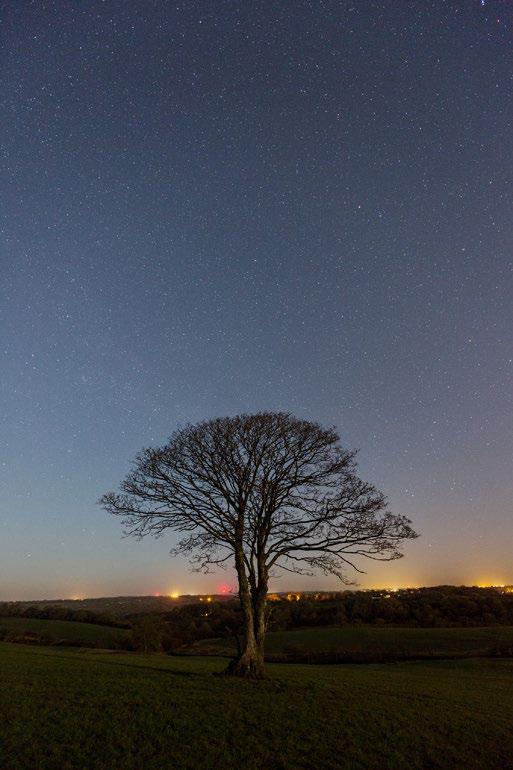
Just because the sun goes down doesn't mean you should pack up your gear and head home! Some of the most fun you can have with a camera is after dark.
From shooting starry skies and capturing whirling star trails, to painting with light, you can get creative and even shoot the elusive Northern Lights if you're far north enough to see them.
After-dark photography is a great string of techniques to add to your bow and will help you get to grips with shooting in low light and mastering settings such as high ISOs, wide aperture, and getting to grips with fast wide lenses, shutter release cables and tripods.
THE MISSION
Capture stunning star shots with these four brilliant techniques
Time needed One hour
Skill level Intermediate
Kit needed
Fast wide-angle lens
Tripod
In this project, I'll run through four of my favourite techniques to try over winter when the skies are clear and the stars are out: pin-sharp stars, star trails, light painting, and capturing the Aurora Borealis. Here's how to do it...
SET UP TO TAKE ASTRO PHOTOGRAPHS
Discover the core camera kit you'll need to shoot starry skies at night
01 CANON EOS CAMERA
Any Canon EOS DSLR or mirrorless camera with an APS-C sensor or larger will be capable of great star shots. If you want to take your astro shots to the next level, you may want to consider converting it to let in more hydrogen-alpha light.
02 LENS CHOICE
Bu hikaye PhotoPlus : The Canon Magazine dergisinin February 2023 sayısından alınmıştır.
Start your 7-day Magzter GOLD free trial to access thousands of curated premium stories, and 9,000+ magazines and newspapers.
Already a subscriber ? Giriş Yap
Bu hikaye PhotoPlus : The Canon Magazine dergisinin February 2023 sayısından alınmıştır.
Start your 7-day Magzter GOLD free trial to access thousands of curated premium stories, and 9,000+ magazines and newspapers.
Already a subscriber? Giriş Yap
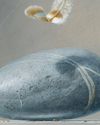
The Art of Copying Art - James Paterson shows you how to use your Canon gear to capture artwork and paintings the right way with simple camera and lighting skills
Whether you want to capture a painting like the above, digitise old prints or reproduce any kind of canvas, there's real skill in capturing artwork with your camera. Not only do you need the colours to be accurate, you also need to master the spread, angle and quality of the light to minimise glare and show the work at its best.This painting by the artist Bryan Hanlon has a wonderfully subtle colour palette. To reproduce the painting in print and digital form, it needs to be captured in the right way.
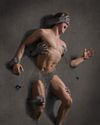
Fright night
Canon photographer and digital artist Alexander loves to craft incredible fantasy scenes with a spooky horror twist

Sharpen your shots with DPP
Sharpening a digital image also increases contrast at the edge of details

CANON ImagePrograf PRO-1100
Deeper blacks, better bronzing, greater lifespan and 5G Wi-Fi -Canon's new printer is full of new tech, says
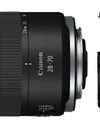
Canon's new 'kit lens' is actually a half-price f/2.8 trinity lens!
The Canon RF 28-70mm F2.8 IS STM lacks a red ring, but borrows premium features from its L-series siblings

DREW GIBSON
Pro motorsports photographer Drew on why he hasn't (yet) switched to Canon's mirrorless system, why old-school techniques can be the most reliable, and the lessons learned from more than a decade shooting the world's biggest car brands
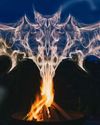
Up in smoke
Make a smoky shape in Affinity Photo and get to grips with the amazing Liquify Persona under the guidance of James Paterson
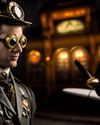
Expand your creativity with Generative Fill
Photoshop's Al-powered feature brings revolutionary new tools to image editing. James Paterson reveals all...
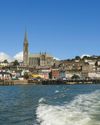
Turn your images into vintage postcards
Wish you were here? Sean McCormack explains how you can give your summer photographs a vintage postcard look
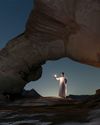
The Angel Malibu
Light painting an American movie producer in the Wadi Rum Desert in Jordan was a highly unlikely evening out for David!